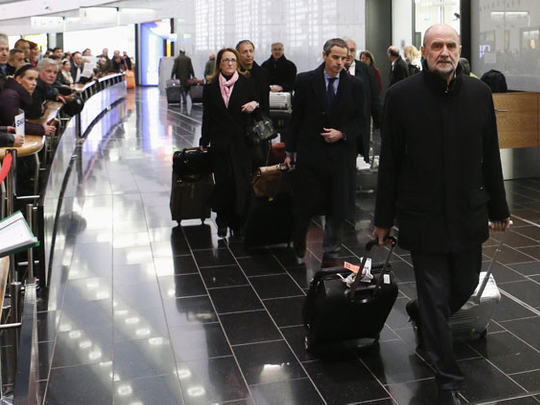
Davos
US-led sanctions on Iran will be unable to influence events in Iran very much more, and have started to have a negative effect of strengthening Iran’s desire to develop a nuclear weapon so as to achieve greater leverage in future negotiations.
“Sanctions are coming to an end, and having watched events in North Korea, Iran knows that it will have more leverage in the talks with the US if it has a bomb,” said Vali Nasr of John Hopkins University in Washington.
He agreed with Joseph Nye of Harvard University that there was an opening for talks in the later half of 2013, but was pessimistic that the opening would be exploited effectively as the Obama administration will not be willing to take the political risk of offering a generous deal to Iran.
Responsibility for nuclear negotiations has shifted completely to Supreme Leader Khamenei. Unlike the Iranian president, the Supreme Leader has the political authority to come to an agreement with the US, but he will need a much better deal than is on the table at the moment, said Nasr.
Nye agreed Obama lacks the political will to make a deal with Iran for two reasons. The first was his domestic focus which was the centre of Barack Obama’s inauguration speech, and the economy will remain Obama’s prime concern even if he is forced by events to pay attention to the Middle East.
But even when he is thinking about foreign policy, Obama intends to let go in the Middle East and instead focus on deepening America’s relationship with China and Asia, as the USA struggles with the growing power of the Asian economies and their increased political will.
But Nye warned that Obama’s plan to develop a new relationship with China might easily be derailed by increasingly strident nationalism in China, Japan and Korea as tension rises sharply over their various territorial disputes.
“The challenge for the Americans is to remain close allies with Korea and Japan, as the USA has been for decades, but at the same time keep an open line to Beijing. Some Chinese talk of the re-pivot of US policy as an example of anti-Chinese Cold War thinking, but that is wrong.
“The US and China are heavily interlinked today through their economies, shared finance and trade, and there are even 157,000 Chinese students studying in the US at the moment. This all points to being able to find a positive way forward,” said Nye, who had been part of a four-man US government delegation to China a few months ago to try to reduce tension and find a negotiated way out of the current confrontation.










